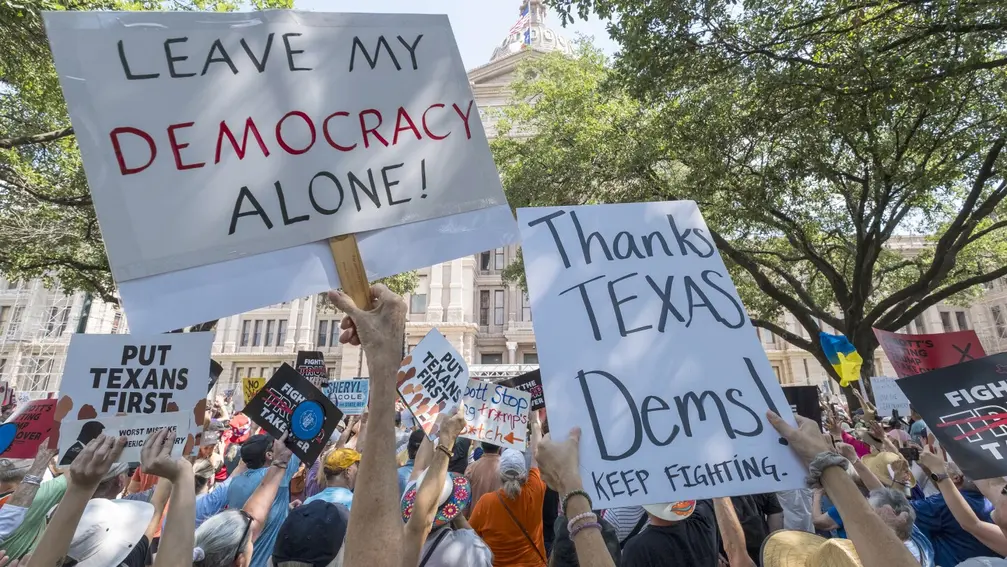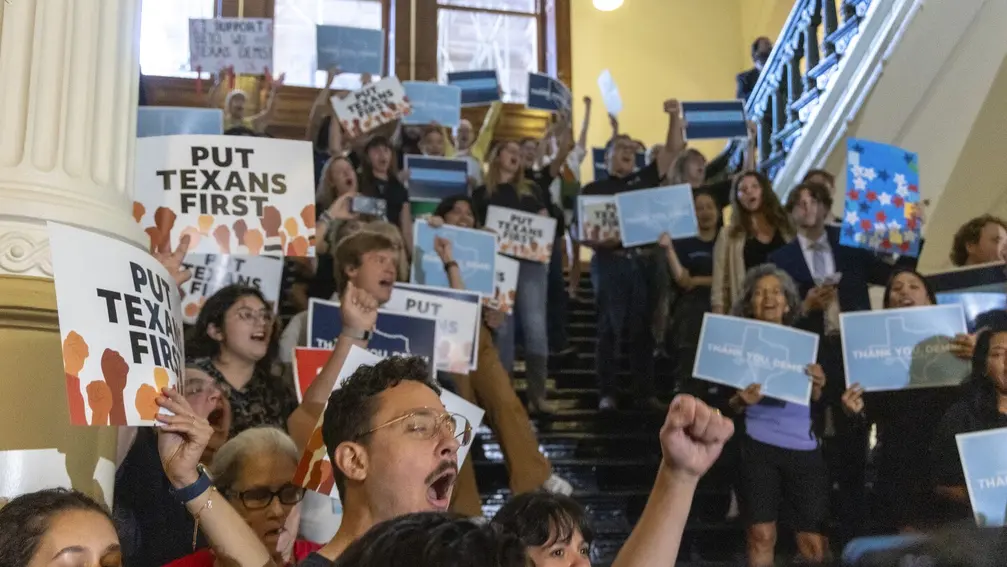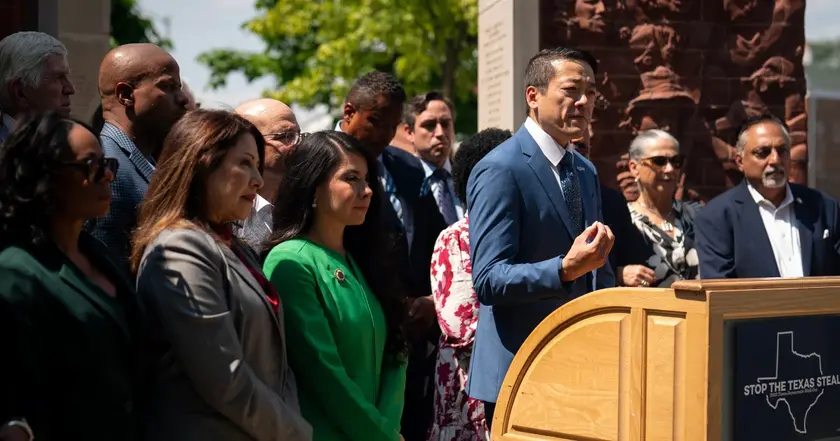T4K3.news
Texas ends walkout over maps
Texas Democrats return to the Capitol after a two week delay on redistricting, as California pursues its own map changes in a national conflict over party advantage.

Texas Democrats return to the Capitol after a two week walkout that blocked Republican redrawing of congressional districts amid a national clash over partisan mapmaking.
Texas Democrats end walkout over gerrymandered House maps
Texas Democrats said they would return to the Capitol on Monday, ending a two week walkout that prevented a vote on redrawn congressional maps by a Republican legislature. They argued the delay allowed time to scrutinize the proposed maps and framed the action as a stand against politicized gerrymandering led by President Donald Trump. The move clears the way for lawmakers to proceed with district lines that could affect Texas representation in Washington ahead of the 2026 midterms.
The move comes as California Democrats pursue their own redistricting efforts, a counter move that highlights how map drawing has become a national political weapon. Gov. Gavin Newsom has signaled a November referendum on the revised districts, while Republicans say the changes threaten fair elections. Analysts note that even small shifts in a handful of districts could tilt control of the House in 2026, making state map battles a national concern.
Key Takeaways
"We killed the corrupt special session, withstood unprecedented surveillance and intimidation, and rallied Democrats nationwide to join this existential fight for fair representation"
Gene Wu on the end of the walkout
"California released proposed maps intended to increase Democrats' House advantage by five seats"
Cross state redistricting developments
"The president wants to shore up Republicans’ narrow House majority"
Trump's influence on redistricting strategy
"Fair representation should outrun partisan theatrics"
Editorial reaction to the broader map battle
Ending the walkout returns lawmakers to business as usual, but the redistricting dispute remains a partisan furnace that tests state governance. The standoff illustrates how control of legislative maps can influence federal power and national narratives. The Texas and California actions show a trend where governors and legislatures use map changes to advance political aims, even as voters seek fair and transparent procedures.
The cross state dynamic also reveals how different governance models shape outcomes. Texas relies on legislative maps drawn by lawmakers, while California proposes more reform oriented approaches. That contrast highlights a broader debate about who should draw lines, how independent commissions may curb partisanship, and how public trust will be rebuilt in a process that many see as a perpetual partisan tool.
Highlights
- Fair maps beat loud politics when people show up
- Maps should serve voters not politicians
- This fight shows how power to draw lines can decide the next House majority
- Democracy needs fair representation not partisan theatrics
Political risk in redistricting standoff
The end of the walkout keeps state legislatures functioning but keeps the redistricting fight highly partisan. The cross state retaliation adds to voter confusion and could provoke public backlash if maps are perceived as partisan.
The map wars will continue to test leaders, voters and the legitimacy of political power.
Enjoyed this? Let your friends know!
Related News

Texas Democrats end walkout as redistricting moves to courts

Texas Democrats press ahead with redistricting walkout

Texas Democrats Travel to California as GOP Vows Escalation

Texas Democrats Return to Capitol Under Close Surveillance

Texas Democrats flee to break quorum during redistricting session

Texas Democrats end redistricting standoff

Texas GOP set to redraw congressional maps

Texas Democrats return after walkout
